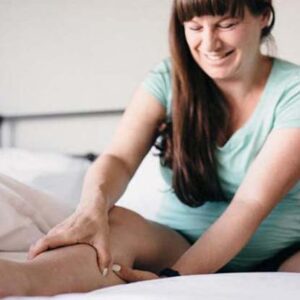SEND US A MESSAGE
CONTACT INFORMATION
Do you have questions about how NZ Natural Formulas can help support your well-being? Send us an email and we’ll get in touch shortly.

Many of us notice “that shoulder” or “that knee” niggle returning in winter. We wake up a bit cold, we get a bit chilled out walking, we cool down too fast after exercise.
And then a little or a lot of cramp grabs our attention.
Muscle cramps occur when a muscle gets tight and does not relax. The muscle goes into spasm – contracting and tightening in an unnatural and painful way. Cramp can come on without warning and below we look at several factors.
Areas most prone to cramping are the calves (often referred to as “charley horse”), feet, thighs, hands, arms and the abdomen. Generally, muscle cramps are caused by an imbalance or over-exertion in the body. Basically, if the body isn’t nourished properly, or if a particular muscle is overused, the chances of cramp are increased.
 People are different
People are differentLearning more about the causes of muscle cramps will help you cope with the symptoms and avoid them if possible. As medical professionals delve into the root cause of cramps, you will understand more about the functions of your body and why some remedies work and others fall flat.
Cramps involve more than a simple diagnosis and treatment. There is a sophisticated approach via science, and some of it simply boils down to the individual. Sometimes there is no clear-cut explanation as to why one person is affected by muscle cramp on a regular basis while another person with a similar lifestyle rarely suffers.
 Understanding your body
Understanding your bodyYou may be surprised to learn that you can control the likelihood of cramping by making a few small adjustments in your everyday life. While not everything described here will be a quick fix, it can prove beneficial over time. Understanding more about your body will influence your ability to avoid cramp in the future.
The average adult human comprises somewhere around 60% water – equal to nearly 75% of all body weight, so water is pretty important when it comes to good health.
Many people struggle with proper hydration through consuming too many sugary drinks such as soda or faux juice drinks. If you start to experience muscle cramps, consider your water intake. A good recommendation is to consume eight 8oz glasses of water a day to maintain proper hydration. Make the healthy choice.
 Muscles get tired
Muscles get tiredYour body needs rest to function properly. Muscles become tired during consistent activity such as repetitive physical action required during your working day or working out at the gym. While you may not exactly feel worn out, know that your muscles probably are.
This fatigue can often lead to muscle cramp. According to research conducted by Sports Science Insights’ managing principal Dr Bob Murray*, cramps are a direct result of the neuromuscular system becomming disrupted by:
» Low blood glucose levels
» Depletion of muscle glycogen
» Dehydration
» Muscle damage
» Elevated body temperature
» Reduced blood flow to muscles
» Loss of cell salts and electrolytes
 Cramp even when fit and healthy
Cramp even when fit and healthyOnce any of the above begin to occur the muscles become fatigued, and the neuromuscular system no longer offers stability to the muscles. The end result is that the muscles begin to contract, leading to painful muscle cramp. Dr Murray says research indicates that cramp most likely has nothing to do with muscle preparedness such as stretching before a workout. Instead, it has more to do with the actual nerve.
Perhaps the nerves and muscles can take only so much activity before cramp sets in, no matter how much you try to prepare the muscle for movement. At some point, your muscles are just tired and need to rest before they can function properly again.
Going through a muscle cramp during work or sport is not only painful but can be dangerous. Sometimes, cramps come on so suddenly they can cause people to fall and further injure themselves. For this reason, it’s important to know why these cramps occur and what you can do to help avoid them.
Cramping could be caused by muscle fatigue, lactic acid build-up, nerve-muscle disruption or dehydration. As mentioned, proper hydration is critical to overall health and will reduce the likelihood of muscle cramps. Muscle fatigue can be common among physical workers and athletes because the body is used so much.
Remember to hydrate properly, especially while you are active. Keep a water bottle or sports drink nearby.
Allow your body to receive a full night of rest after prolonged physical activity. Don’t skimp on sleep and if you are an athlete, try to reduce consistent, repetitive workouts. Many personal trainers insist on the body having a full 24 hours of complete rest each week.